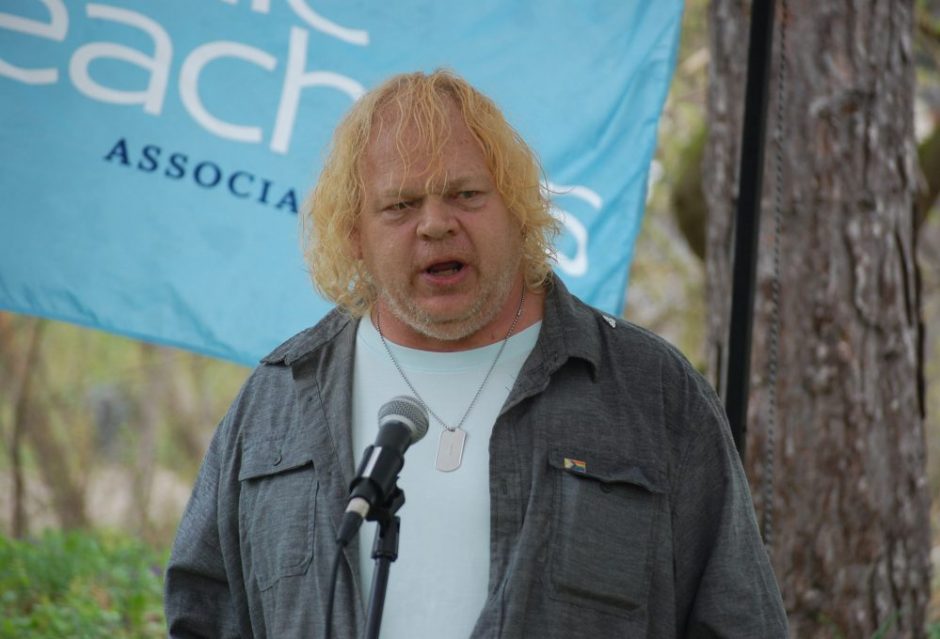Recognized by an act of Parliament, April 28 is the National Day of Mourning for people who’ve lost their lives on the job. Over three decades later still hundreds of people die while working in Canada every year, and sometimes that hits pretty close to home. So once a year, Guelph labourers and labour activists gather in Goldie Mill Park to remember and this year, the clouds and the rain broke long enough for everyone to remember comfortably.
“This is an important event because it brings to light the dangers that still exists at our workplaces,” said Nicole Clark, the current president of the Guelph & District Labour Council. “It allows us to mourn for those without privileges and who may only have a corporate checklist for health and safety, like the recent death of the 67-year-old Elora Rona worker who was killed by a customer while working
“This moment also must be shared with those workers with hidden injuries: Heart attacks, strokes, and mental health, people who have died or have been out of work because of the environment that we are now forced to work in. We are here to mourn those we have lost and to light a fire in our bellies to move forward and fight for those who are in workplaces now,” she added.
Lighting a fire was a theme for the day. Willy Noiles with the Ontario Network of Injured Workers Groups spoke of advocacy around the Workplace Safety and Insurance Board (WSIB) and increasing the rate of compensation to 90 per cent of net earnings for injured workers as promised by the Ontario government two years ago. He said that the WSIB is good at playing the Blame Game, but not good at following up on their promises.
“We’re halfway through the term, we’re on to our second labour minister, and has anybody heard even a whisper of the government planning to implement that promise?: Noiles asked. “When Laurie Scott was [Minister of Labour] for her brief tenure, she met with us three times. Obviously, the message came down, ‘No, you do not want to be talking to those injured workers because they’re a bunch of rabble rousers!’ This is definitely the day that we mourn for the dead, but we fight like hell for the living!”
The other theme was the future dangers workers will face as the climate changes.
“As the global temperature rise, the hazards faced by workers multiply, and yet, shockingly, there is nothing in the Occupational Health and Safety Act regarding heat stress. That is nothing short of an abomination,” explained Janice Folk-Dawson, a special advisor with the Canadian Union of Public Employees and the NDP candidate for Guelph in the next federal election.
“There’s also no regulation or guidance in the Occupational Health and Safety Act for dealing with smoke from forest fires, flooding or drought conditions in our workplaces and communities,” she added. “We cannot ignore the rising temperatures, or the scorching heat waves that put workers lives at risk. We need legislation now more than ever, to protect workers from heat related illnesses, exhaustion, and even death.”
Tina MacPherson, director of program development at Workers Health and Safety Centre, agreed and said that any transition to a greener economy needs the input of workers, and they also need government action to prevent new dangers from fossil fuels.
“As profits shrink in the pursuit of zero emission energy, Big Oil is using toxic chemicals as a lifeline. They are initiating a massive build out of petrochemical plants to supply producers of industrial chemicals, plastics and pesticides, which are rapidly becoming the world’s largest driver of global global oil consumption,” McPherson said.
“Research points to the mounting evidence linking petrochemicals to chronic and deadly conditions killing millions around the planet each year,” she added. “In our workplaces, worker health and safety reps can expand their efforts by creating toxic inventories, and undertaking the painstaking process of working to substitute petroleum-based materials with those developed from greener sources.”
All the speakers said that it’s the responsibility of all levels of government to institute laws and policies that make safer work places for everyone, and to ensure that when workers do get injured that they’re compensated well and without getting forced to go through a onerous number of bureaucratic hurdles. They also encouraged workers to fight for their rights and ensure that they’re not being asked to choose between dangerous work and a paycheque.
You can see the full video of the event below:

